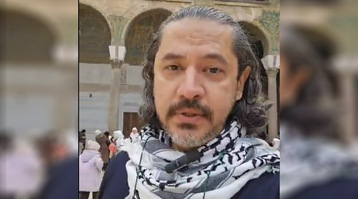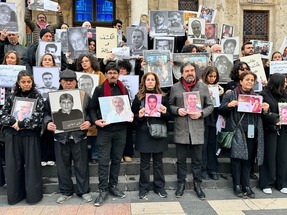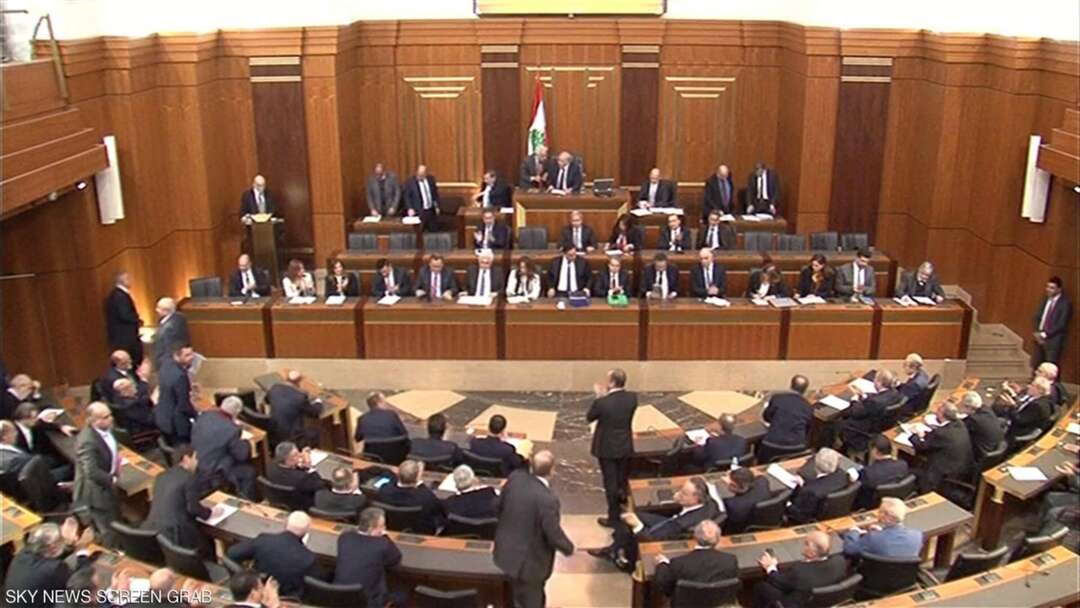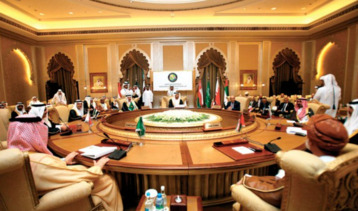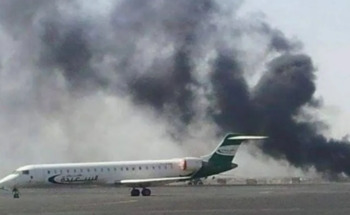-
Death toll climbs as unrest spreads in Iraq on third day of protests
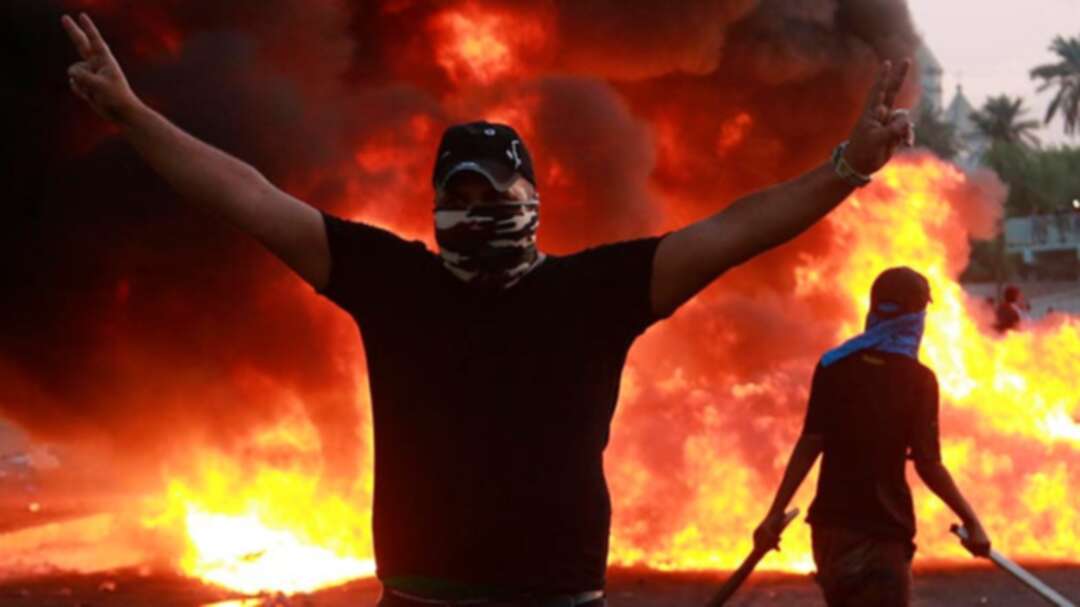
Iraqi security forces opened fire on thousands of demonstrators who defied a curfew in Baghdad on Thursday and exchanged fire with gunmen in southern cities, bringing to 33 the death toll from three days of anti-government protests.
The protests spread to other cities in predominantly Shi’ite Muslim southern Iraq, where policemen said they increasingly encountered demonstrators carrying weapons.
In the last three days, at least 20 protesters and one policeman were killed in four provinces. On Thursday, the first death was reported in Baghdad where one protester was killed as the demonstrators pushed their way toward Tahrir Square in the city center.
The square has been off-limits since Wednesday night just before the curfew.
Soon after, protesters overpowered a soldier in his armored vehicle, setting it on fire and warning other security forces to stay away from the square. The protesters then marched toward the square. There were also fires set to parts of government buildings in the southern provinces of Najaf and Dhiqar.
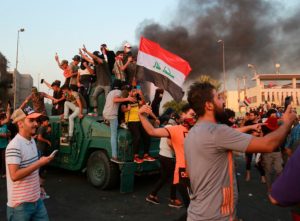 Anti-government protesters take over an armored vehicle before they burn it during a demonstration in Baghdad on October 3, 2019. (AP)
Anti-government protesters take over an armored vehicle before they burn it during a demonstration in Baghdad on October 3, 2019. (AP)At least five protesters were shot and killed Thursday in Zaafaraniya, a southern Baghdad neighborhood, according to police and a medial official.
Explosions were heard before dawn inside Baghdad’s heavily fortified Green Zone, home to government offices and foreign embassies. The US-led coalition said an investigation was underway into the attack, adding that no coalition forces or assets were hit.
An Iraqi security official said two mortar shells hit the Green Zone, falling on an open space and not causing any injuries. The official spoke on condition of anonymity in line with regulations.
In the latest deaths, at least six protesters were shot and killed Thursday in the city of Nasiriyah, about 320 kilometers (200 miles) south of Baghdad, a medical official told The Associated Press. Nasiriyah has seen the most violence since the protests began on Tuesday.
The mostly leaderless protests have been concentrated in Baghdad and in predominantly Shiite areas of southern Iraq, bringing out jobless youths and university graduates who are suffering under an economy reeling from graft and mismanagement.
Two policemen and two protesters were killed late on Thursday in the city of Diwaniya some 160 km (100 miles) south of Baghdad, according to police.
In nearby Hilla one protester was bludgeoned to death, according to police and hospital sources.
Three more died in a district of Baghdad and elsewhere in the capital protesters had set fire to army vehicles, security sources said.
The protests, in which more than 600 people have also been wounded, began over unemployment and poor services but have escalated into calls for a change of government and pose one of the worst security challenges in years in the war-weary country.
They appear to be independent of any political party and seemingly took the security forces by surprise.
“The bullets do not scare us. They do not scare Iraqis. This will all come down over their heads,” said one protester in the capital.
At least 4,000 protesters gathered in Baghdad’s Tayaran Square and attempted to march onto the central Tahrir Square but were met with open fire and heavy tear gas.
Police used live ammunition in the Zaafaraniya district of Baghdad, where three protesters were shot dead, and there were protests in the northwestern Shula district.
Police said protesters had fired at them in the town of Rifae near the southern city of Nassiriya where seven people were killed overnight and another on Thursday. Fifty people were wounded in Rifae, including five police, they said.
Four people were killed in clashes overnight in another southern city, Amara.
The United Nations urged the government to “exercise maximum restraint” and allow peaceful protests.
‘Live gunfire’
A curfew, lifted early in the morning in southern cities, was reimposed immediately in Nassiriya and later in Amara. Curfews have also been declared in the Shi’ite holy city of Najaf and in Hilla.
In Baghdad, the authorities attempted to head off protests by imposing a curfew from 5 a.m. Troops patrolled main roads and public spaces, but by morning sporadic demonstrations had begun, and troops opened fire with live rounds to disperse them.
Residents of the capital queued outside supermarkets and food stores to stock up on supplies in case of a sudden rise in prices or further security restrictions by authorities.
The demonstrations began in Baghdad on Tuesday and quickly grew and spread to other cities, mainly in Iraq’s south. Police have fired live rounds, tear gas and water cannon to disperse protesters.
Protesters directed their anger at a government and political class they say is corrupt and doing nothing to improve their lives.
“The people are being robbed. The people are now begging on the street. There is no work, you come to protest, they fire at you. Live gunfire,” said a man covering his face in a scarf.
Iraq has the world’s fourth-largest reserves of oil, according to the International Monetary Fund, but much of its population of 40 million lives in poverty and without decent healthcare, education or power and water supply.
Pilgrimage
The violence began just days before the Shi’ite pilgrimage of Arbaeen, when about 20 million worshippers are expected to journey across southern Iraq on foot for days in the largest annual gathering in the world.
The Iraqi unrest forced Iran to shut one of the major border crossings used by pilgrims.
Prime Minister Adil Abdul Mahdi chaired an emergency national security council meeting and ordered Thursday’s curfew in Baghdad. Only travellers to and from the airport, ambulances, some government employees and religious pilgrims were to be allowed on the streets.
He visited the Baghdad Operations Command on Thursday with the defense and interior ministers, state television reported.
You May Also Like
Popular Posts
Caricature
Syrians' concerns now
- December 10, 2024
Syrians' concerns now #Syria
#Bashar_al-Assad
#Liberation_of_Syria
#Syrians
#Future_of_Syria
#Levant_News

opinion
Report
ads
Newsletter
Subscribe to our mailing list to get the new updates!


